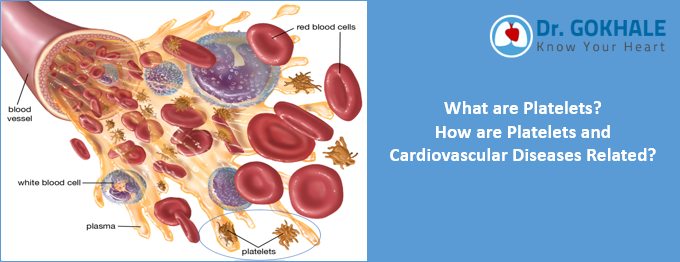What are blood platelets?
Blood platelets are tiny blood cells that rush to the injury site to form the blood clot and stop further blood loss.
As soon as you are cut, the blood platelets circulating the body gather and get attached to the site ( platelet activation), recruit more platelets, aggregate and seal-off the leak to stop the blood loss. Meanwhile, WBS rush to the site and kills the bacteria that broke-in to the site. After a few days, the dermis cells regenerate and make the new skin.
Where do these blood platelets fit in the blood?
Blood is essentially made up of two major components: Plasma and Cells. While the first component Plasma contains water, electrolytes, and proteins, the second component is made up of three types of cells Erythrocytes (RBC), Leucocytes (WBC) & Thrombocytes (Blood Platelets).
So the blood circulating through your body is the mixture of plasms, proteins, RBC.WBC and the blood platelets.
Why are blood platelets important?
Every component of the blood has a specific function to carry making them a crucial element. The best way to measure their importance is to imagine a scenario of their absence in our bodies.
Through the platelet activation mechanism, blood platelets help in forming a blood clot that is critical for curbing the blood loss after injury which is why an average of 2 lakh platelets per microliter are needed by our body. So when the total blood platelet count falls low, it can lead to easy bruising or bleeding, bleeding gums, blood in urine or stool, nosebleeds, fatigue, spleen enlargement, jaundice and even death in extreme cases.
How are blood platelets and cardiovascular diseases linked?
The blood clotting property of the platelets is critical for the optimal functioning of our body. But in few cases the same blood clotting function through platelet activation can cause heart stroke or attack or other cardiovascular diseases.
Platelet activation in cardiovascular disease:
When the blood vessels are injured excessive smoking, high blood pressure or large cholesterol levels, a plaque can develop inside the blood vessels restricting the blood flow. And when this plaque ruptures, the platelets as the usual rush to the rupture site form a blood clot further blocking the blood in the arteries. If this blockage happens in the artery that supplies blood to the heart muscle it can cause a heart attack. If it happens in the artery that supplies blood to the brain, it can result in brain stroke. Owing to the role of platelets, platelet activation in cardiovascular and coronary heart diseases has become a widely researched topic in the medical field today.
Got more queries or want to seek help from cardiovascular experts?
With a remarkable track record in heart transplants and cardiovascular treatment procedures, Padma Shri Awardee Dr. Gokhale is the best cardiovascular surgeon in Hyderabad who can help you. You can contact him here.
 Ask Doctor
Ask Doctor
